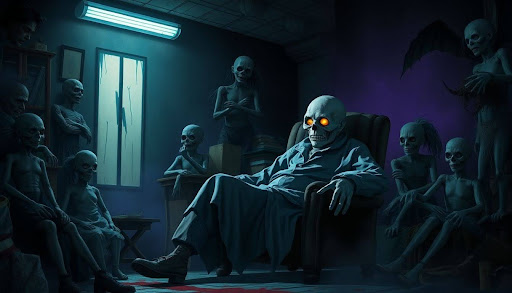Nothing Like the Movies by Lynn Painter – A Heartfelt Sequel Review
What happens when life stops looking like your favorite rom-com? In Nothing Like the Movies, Lynn Painter takes us back into the lives of Liz and Wes, two characters we fell for in Better Than the Movies. This sequel starts two years after their breakup, diving into themes like love, loss, and starting over. With Wes navigating grief after a family tragedy and Liz finding her place in college, the story captures the messy, beautiful process of growing up—and growing together. Whether you’re a fan of second-chance romances or heartfelt coming-of-age tales, this continuation promises a blend of emotional depth and swoon-worthy moments.
Overview of the Plot
In Nothing Like the Movies, Lynn Painter continues the story of Wes and Liz two years after their romantic beginnings in Better Than the Movies. The sequel dives into personal struggles, emotional resilience, and second chances amid life’s many curveballs. Wes is coping with the loss of his father while trying to steady his family after this devastating blow. Meanwhile, Liz is fully immersed in the challenges of college life, tackling a new chapter in her career dreams while navigating complicated feelings about her past with Wes. Let’s uncover the nuanced layers of these characters’ journeys.
Wes’s Emotional Journey: How Grief Shapes His Growth
Wes’s story is, at its core, about dealing with insurmountable loss. Following his father’s death, Wes shoulders the responsibility of supporting his family—a path that’s as heartwarming as it is heartbreaking. This is the moment where readers see Wes grow immensely from the cheeky, confident boy in Better Than the Movies into a young man weighed down by real-world burdens.
How does grief change a person? For Wes, it’s a collision of guilt, love, and obligation. He wants to honor his father’s memory while protecting his family. Yet his new responsibilities create internal struggles, including hesitations about rekindling things with Liz. His journey isn’t just about seeking love—it’s about rediscovering himself. The emotional depth in Wes’s character is apparent and relatable, reflecting the challenges young adults navigate when life feels overwhelming.
For more about Wes and this side of his growth, check out this detailed book review: Book Review: Nothing Like the Movies by Lynn Painter.
Liz’s Path to Independence
Liz, on the other hand, represents a refreshing view of self-reliance and ambition. Despite her love of rom-coms and longing for big, romantic gestures, the Liz we meet in this sequel is focused on self-growth and career aspirations. With the backdrop of UCLA, readers see her navigating life away from the safety of her hometown romance and the boy-next-door charm of Wes. Her time is spent juggling a new relationship and chasing career dreams—a deeply personal journey that resonates with young adults trying to balance love with their own goals.
As Liz charts her independent path, she confronts unresolved feelings about Wes. This push and pull between sticking to her individual goals and considering a second chance with Wes keeps readers hooked. The beauty of her character arc lies in how real it feels—embracing flaws and tough decisions while also learning what truly matters. Liz isn’t just growing personally; she’s also grappling with the essence of sacrifice and how relationships shape us, even long after they end.
To understand the emotional complexity Liz portrays, you can visit Nothing Like the Movies: Better Than the Movies, Book 2.
Both Wes and Liz bring a balance of heartache and hope, creating a layered and deeply relatable narrative for readers navigating the messy moments of adulthood.
Themes That Shine Through
Lynn Painter’s Nothing Like the Movies stands out for its rich thematic elements, seamlessly blending lighthearted romantic comedy moments with raw emotional depth. These themes not only make the story relatable but also create a layered narrative readers won’t soon forget.
Rom-Com Elements in the Story
If there’s one thing Lynn Painter nails, it’s weaving classic rom-com vibes into her storytelling. From witty dialogues to moments that mirror scenes in Liz’s favorite movies, Painter keeps us hooked. Liz and Wes share sharp, playful banter that feels like it belongs in a Nora Ephron movie. The quick exchanges, full of sarcasm and charm, give readers a glimpse into the lingering connection between the two characters—even when they’re navigating the awkwardness of exes reuniting.
The book also pays homage to grand romantic gestures that feel plucked straight from Liz’s beloved rom-coms. Whether it’s Wes secretly planning a heartfelt surprise or Liz finding unexpected moments of connection, these gestures capture the magic we’ve come to love in romance novels. Painter doesn’t shy away from referencing iconic films, threading them through the plot in a way that feels organic rather than overused. These nods remind readers of the larger-than-life magic of romance while keeping the story grounded in relatable emotions.
If you’re intrigued by the blend of humor, love, and larger-than-life moments that embody romantic comedy, you might enjoy this article examining the core elements of romantic comedies.
Deeper Emotional Layers
Beyond the playful rom-com tone, the novel dives into heavier, more nuanced issues. Trauma, miscommunication, and unspoken feelings lie at the heart of Liz and Wes’s journey. Wes’s grief after the loss of his father isn’t just a detail—it’s a defining part of his story. It highlights the ways in which people carry burdens they don’t always know how to share. Painter explores how this affects not just Wes’s individual growth, but how he interacts with Liz and the people around him.
Similarly, Liz faces her own emotional struggles. While she’s chasing dreams in college, grappling with a new boyfriend, and appearing to have moved on, the unresolved feelings she harbors for Wes reveal the complexities of young adulthood. Painter doesn’t sugarcoat these emotions. She portrays the frustrating yet realistic dynamics of avoidance and miscommunication, showing how unresolved grief and guardedness create emotional walls.
What makes this emotional depth so compelling is its relatability. We’ve all experienced moments of silence where we wish we’d spoken up or carried heartbreak we’ve struggled to share. These struggles make Liz and Wes feel more like real people than characters on a page. The novel captures this emotional realism beautifully, painting a bittersweet, heartfelt picture of love and personal growth.
For a closer look at how Nothing Like the Movies portrays grief and emotional healing, check out this insightful book review. Combining humor with depth, Painter creates a story that feels as joyous as it is raw.
Through its rom-com sparkle and gut-punch emotional moments, Nothing Like the Movies gives us two characters who are as flawed and tender as anyone trying to navigate love and life.
Character Development
The heart of Nothing Like the Movies lies in the nuanced growth of its characters. Lynn Painter expertly builds Wes and Liz’s individual arcs, intertwining their emotional struggles with their evolving bonds. The pain of growing up, navigating relationships, and redefining personal goals are key, making this story deeply relatable for readers.
Family Dynamics and Its Influence
Wes and Liz’s journeys are shaped heavily by their family situations. For Wes, the loss of his father creates a ripple effect that affects every aspect of his life. He finds himself crushed under the weight of responsibility, stepping up for his family even when it demands putting his dreams on hold. This shift—from carefree high schooler to a young man taking life head-on—illustrates how tragedy can force maturity in ways we’re never ready for. Wes’s struggle to balance personal desires with familial obligations makes him a character everyone can empathize with. For more insight into this, you can explore this character analysis of Wes.
Liz’s dynamic, while less tragic, reflects the complexities of familial relationships. Her parents, ever supportive, serve as a grounding force in her life, even as she ventures out for college. However, it’s the evolving relationships with her peers, especially as her friendship circle widens, that push Liz to reevaluate what matters most. Painter’s storytelling captures these moments beautifully, contrasting Wes’s heavy burdens with Liz’s exploration of boundaries and identity. To learn more about how Painter uses family to influence character growth, visit this detailed breakdown of the book’s themes and characters.
Navigating Friendships in College
The shift to college life is another pivotal point for Liz. At UCLA, a diverse group of characters is introduced, each bringing a fresh perspective and new challenges. These friendships play a crucial role in Liz’s growth. From roommates offering comic relief to classmates sparking inspiration, every new relationship adds complexity to her character. These dynamics also raise questions about loyalty, boundaries, and trust—key themes for many young adults stepping into independence.
Wes too encounters others who shape his worldview, although his responsibilities tether him more closely to the family home. He navigates acquaintances who remind him of the life he could’ve had if circumstances had been different, adding depth to Wes’s storyline. The stark difference between Liz’s ability to connect with new people and Wes’s isolation creates a heartfelt layer to their push-and-pull dynamic. For more on how these relationships amplify the narrative, check out this book review exploring emotional layers in the story.
Painter skillfully uses these interwoven relationships to portray the messy, beautiful process of finding oneself while being deeply connected to others. The new connections Liz and Wes make in this sequel breathe life into not only their individual arcs but also the challenge of rediscovering love when personal growth is at the forefront.
Writing Style and Narrative Structure
Lynn Painter’s storytelling style in Nothing Like the Movies is what truly breathes life into this sequel. Her ability to balance charming humor with real emotional depth ensures readers remain captivated while also reflecting on the complexity of life and relationships. Through dual perspectives, expertly paced scenes, and a mix of rom-com frivolity with authentic discussions about grief, Painter creates a novel that feels both personal and universal.
Music and Movie References: Detail How Music and Rom-Com Tropes Enhance the Storytelling Experience
For fans of romantic comedies, Nothing Like the Movies feels like stepping into a vivid, cinematic world. Painter weaves references to iconic rom-coms seamlessly throughout the narrative, much like a treasured soundtrack in a movie. Liz’s love for these films isn’t just a quirky trait—it’s part of the story’s fabric. Her experiences unfold like scenes from her favorite classics, where reality and fantasy collide. These callbacks resonate with anyone who has ever sought comfort or guidance in the warm familiarity of a movie, showing how art influences the way we view our own lives.
Additionally, music plays an essential role in setting the tone. Whether it’s a specific song that reignites memories for Liz and Wes, or a casual mention of a playlist that captures their emotional state, music provides an emotional undercurrent to the storytelling. It reinforces Painter’s world as fully immersive, engaging readers not just through words but by prompting them to connect through their own sensory associations with songs and pop culture.
This interplay between music, movies, and storytelling evokes a timeless charm. It reminds us that the right song or a poignant movie reference can feel like a balm for the soul—or a nudge toward the bittersweet realization of love lost and found. For readers who adore this blend of music and movies working in harmony with characters’ lives, you might enjoy Lynn Painter’s thoughts on her inspirations in this interview: Lynn Painter: On Rom-Coms and Escapism.
Balancing Humor with Serious Issues: Analyze How Painter Blends Light-Hearted Moments with Discussions of Complex Emotional Topics
One of Lynn Painter’s greatest strengths lies in her ability to juxtapose laugh-out-loud moments with emotionally raw scenes. From Liz’s whimsical, sometimes awkward antics to Wes’s sarcastic yet endearing dialogue, humor serves as both a narrative delight and a coping mechanism for the characters. It’s the comedic relief we all crave during life’s more intense moments, making their journeys feel more authentic and relatable.
However, the humor never detracts from the weightier issues at hand. Wes’s grief following his father’s death is palpable, grounding his character and offering a stark contrast to Liz’s lighthearted pursuit of her dreams. Painter carefully balances the tone, offering moments of levity that feel earned and intentional. A witty one-liner might precede a moment of vulnerability, mirroring the way real life often bounces between emotions.
This balance enriches the narrative. Instead of overwhelming the reader with sadness or veering into frivolous territory, Painter creates tension—a dance between heartbreak and hopefulness. It’s this complexity that keeps readers connected to Wes and Liz’s individual arcs while rooting for them to find common ground again. For an in-depth look at how Painter expertly combines humor with emotional depth, check out this resource: Nothing Like the Movies by Lynn Painter – Readlogy.
Through poignant movie references, emotionally resonant storytelling, and the perfect dose of humor, Lynn Painter ensures that Nothing Like the Movies offers more than just a story—it’s an experience. Whether it’s a tearful moment, a laugh-out-loud dialogue, or a scene that feels like it belongs on the big screen, Painter’s writing achieves a delicate balance that leaves readers smiling through their tears.
Reader Reactions and Popularity
Lynn Painter’s Nothing Like the Movies has sparked significant discussion among readers since its release. As a sequel to Better Than the Movies, this novel revisits familiar characters while exploring deeper emotional terrains. Let’s dive into what readers loved and where their critiques landed.
What Readers Loved
Fans of Lynn Painter have been vocal about their admiration for Nothing Like the Movies, singling out its clever humor, emotional richness, and deeply satisfying conclusion.
Readers praised the book’s ability to weave heartfelt moments throughout its humor-filled narrative. On platforms like Goodreads, reviewers frequently highlighted the witty exchanges between Wes and Liz, describing their dynamic as both charming and painfully real. One reader described the dialogue as “exactly what you’d want from a rom-com—sharp, funny, and full of chemistry.”
Another aspect that won readers over was the book’s emotional depth. The novel tackles significant topics like grief, transition, and second chances in love, giving these themes a resonant space to shine. NetGalley reviewers noted that the characters’ emotional journeys felt authentic and relatable, particularly Wes’s struggle with loss and Liz’s path to self-discovery. These elements grounded the rom-com elements in a story that felt more layered than your average romantic comedy.
Lastly, many readers found the ending deeply fulfilling. The conclusion provided a sense of closure while staying true to the characters, ensuring fans of the series left with hearts full. For additional insights, check out this enthusiastic book review, where the reviewer admits to tearing up but loving how the story came together.
Critiques and Mixed Reactions
Not all reactions were glowing, though. Some readers voiced concerns about the pacing and unresolved character arcs in Nothing Like the Movies.
One criticism that appeared repeatedly in reviews was about the plot’s slower moments, which some found detracted from the overall flow of the story. According to a Young Creative Press review, certain scenes felt unnecessary for the central narrative, leaving the pacing uneven. “It dragged a bit in the middle,” one reviewer commented, adding that they found themselves skimming at times.
Readers also pointed out issues with the character development of secondary figures. While Liz and Wes grow and evolve, side characters often seemed underdeveloped or inconsistent in their roles within the story. Some noted that these missed opportunities lessened the book’s emotional punch, as side plots could have added much more complexity.
Finally, the theme of miscommunication received mixed feedback. While it acted as a pivotal device driving the story forward, some readers found it overused. As noted on Goodreads, certain moments of misunderstanding between Liz and Wes stretched believability or elicited frustration rather than sympathy. “At some point, you just wanted to yell at them to TALK to each other,” one reader wrote.
While Nothing Like the Movies has its flaws, its balance of humor, depth, and endearing characters ultimately won over the majority of readers. Whether praised for its emotional weight or critiqued for its occasional shortcomings, this sequel has sparked meaningful conversations about love, loss, and what it means to grow together.
Conclusion
Nothing Like the Movies by Lynn Painter is a fitting sequel that walks the line between bittersweet and hopeful. The story doesn’t just continue the romance between Wes and Liz; it explores their lives in a way that feels both raw and heartwarming. With its mix of humor, grief, and second chances, the book captures the turbulence of growing up while staying true to the characters we loved from the first installment.
Whether you’re a long-time fan of Better Than the Movies or simply enjoy relatable stories packed with emotional depth and sparkling wit, this novel has something to offer. It’s a reminder that life, much like love, rarely unfolds as neatly as in the movies—but that doesn’t make it any less meaningful.
If you haven’t yet, pick it up and step back into Wes and Liz’s world. It’s a story worth experiencing—and maybe, one that will stick with you long after the final page.







